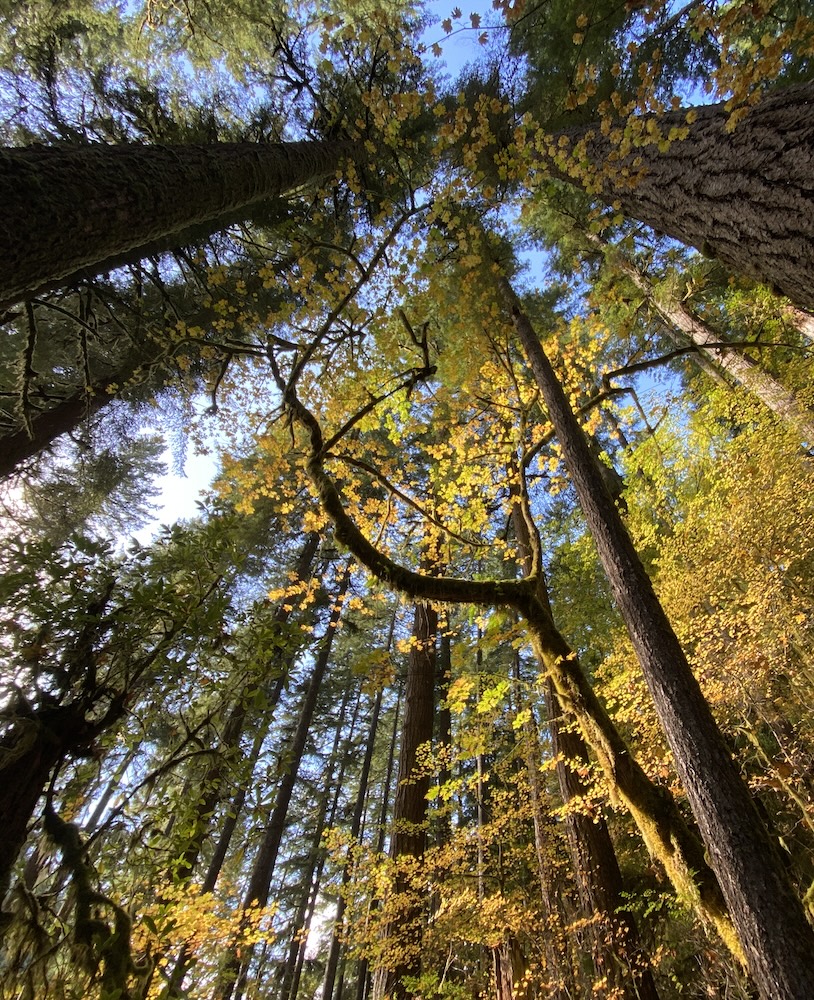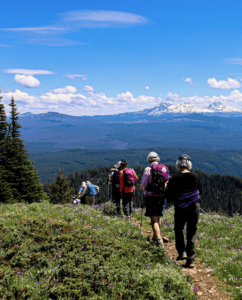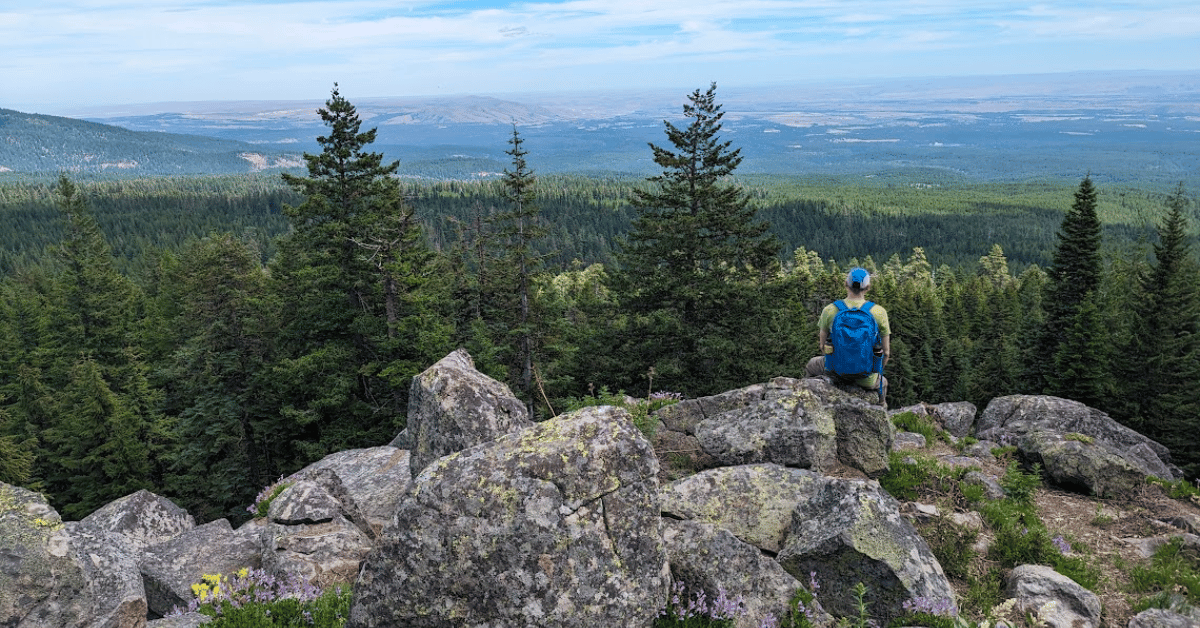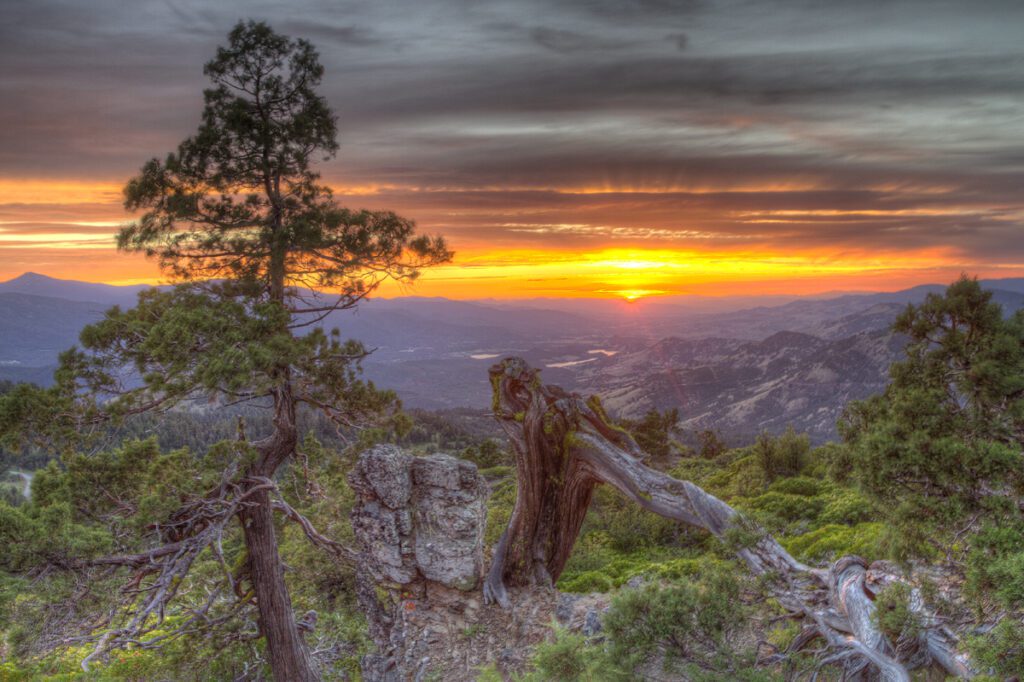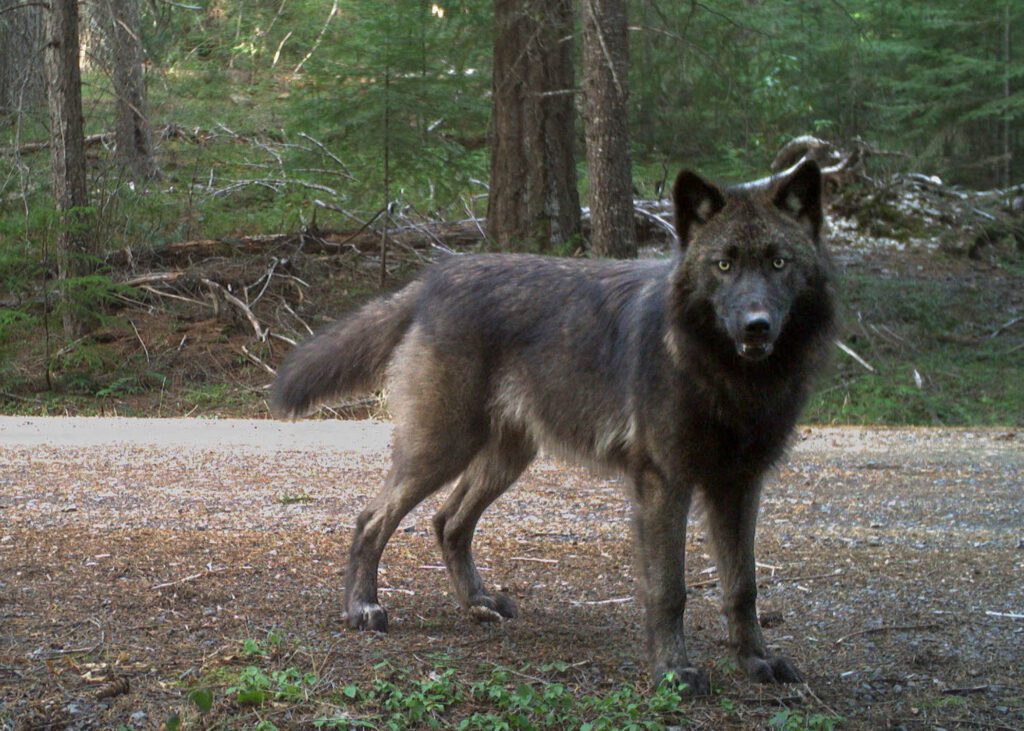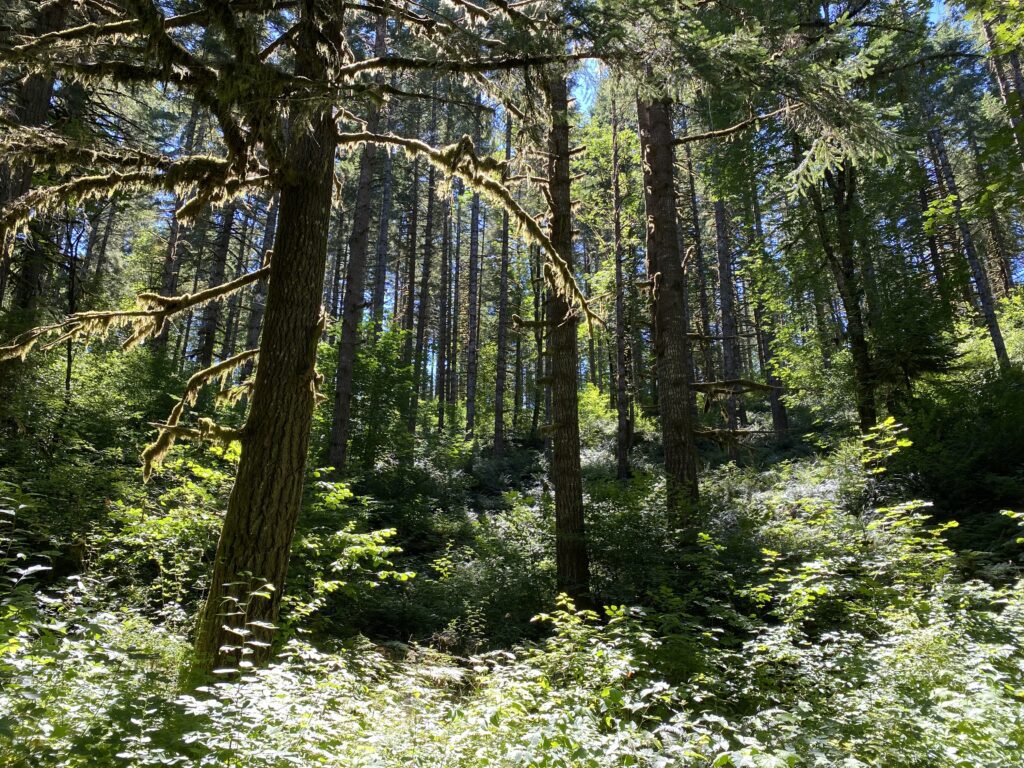By Helena Virga
It seems unimaginable that the Forest Service would target mature and old-growth forests for logging in the Mt. Hood National Forest, threatening vital carbon-storing forests and precious spotted owl habitat, and degrading the recreation values that attract so many to the beautiful areas around the mountain. Yet, the Forest Service’s Grasshopper Project does just that. Luckily, Oregon Wild is stepping up to challenge the Forest Service and their incredulous decision.
On June 27, 2023, Oregon Wild filed suit against the Forest Service, challenging the agency’s authorization of the Grasshopper Restoration Project in Mt. Hood National Forest directly south of the Badger Creek Wilderness. The Forest Service authorized commercial logging across 5,000 acres of forest, which would remove enough trees to fill 4,000 logging trucks.
The Grasshopper Project not only threatens wildlife and impacts recreation for many who cherish this place but also acts in opposition to President Biden’s direction to conserve America’s mature and old-growth forests.
How does Grasshopper threaten wildlife and biodiversity?
This logging project poses a significant threat to many species that live in this forest, including the threatened northern spotted owl, which is meant to be protected by the 1973 Endangered Species Act. The wildfires of 2020 and 2021 already reduced available habitat for these owls in the Mt. Hood National Forest, and this project puts over 1,200 more acres of key spotted owl habitat on the chopping block.

(photo courtesy of Wildlife Department BNR – Confederated Tribes of Warm Springs)
The Grasshopper Project is also near an area of recent wolf activity. The White River Pack, as seen in the above photo, has been documented roaming areas of Mt. Hood just a few miles from the proposed logging project, after having been absent for over 70 years.
The Grasshopper Project area is in a unique transition zone along the Cascade Crest, encompassing large stands of Douglas-firs and Ponderosa pines. The Forest Service states that its goal is to reduce the risk of high-intensity wildfires and to protect wildlife habitat. Yet many of these mature stands are operating within the range of normal in terms of fire and already provide vitally important habitat that would be degraded or lost if logging goes forward.

With owls, wolves, deer, swallowtail butterflies, and more species relying on this forest for survival, the Forest Service has failed to balance wildlife habitat needs with appropriate forest treatments. The Forest Service has prescribed ecologically inappropriate treatments for the mature, moist, mixed-conifer stands in the project area.
How does Grasshopper impact recreation?
Recreationists of many kinds utilize the proposed logging area and its surroundings throughout the year. Plentiful hiking, climbing, and camping opportunities are in and near the proposed logging areas. A popular hiking trail, Rocky Butte Trail, provides stunning views of Mt. Hood from an old fire lookout directly above the proposed logging area, with views that would be altered for generations if logging goes forward.

(Photos of hikers on Rocky Butte Trail)
The Grasshopper Project is also near campground areas such as Bonney Crossing Campground in the east to the popular, beautiful hiking and water recreation destination Boulder Lake in the west.
How is Grasshopper misaligned with President Biden’s recent Executive Orders?
In 2021, Biden issued Executive Order (EO) 13990 to restore the role of science in tackling the climate crisis, and to direct federal agencies to calculate the true costs of greenhouse gas emissions. On Earth Day 2022, Biden issued another EO, 14072, which highlighted the importance of mature and old-growth forests on public lands in the US and the importance of conserving them.
Because the Grasshopper Project is proposing to log mature and old-growth forests, our natural carbon sequestration powerhouses, the Forest Service is acting in direct opposition to the Biden Administration’s call to combat climate change through these forests’ protection.
“In Oregon, logging is the leading source of carbon emissions that worsen climate change, and we don’t have time to spare when it comes to keeping carbon stored on public lands and out of the atmosphere,” said Victoria Wingell. Victoria is the Forests and Climate Campaigner for Oregon Wild and also supports Oregon Wild’s work in the Climate Forest Campaign. The Climate Forest Campaign is a nationwide coalition of over 120 organizations calling on lasting federal protections for mature and old-growth forests. You can find more about how YOU can support this campaign on the Climate Forest Campaign website here.

About the Lawsuit
Oregon Wild filed its lawsuit against the Forest Service challenging the Grasshopper Project in the U.S. District Court for Oregon. The complaint asserts that the Forest Service failed to complete a detailed Environmental Impact Statement (EIS) analyzing the impacts of the Grasshopper Project and failed to analyze the project’s cumulative impacts from other logging, violating the National Environmental Policy Act (NEPA).
The complaint also asserts that the logging project violates the Endangered Species Act regarding its effects on the northern spotted owl, which is listed as “threatened” under the statute. The Forest Service relied on a biological opinion (BiOp) prepared by the U.S. Fish and Wildlife Service (FWS) in 2020. However, that BiOp predates recent wildfires that destroyed many acres of critical habitat for the spotted owl and is no longer valid.
Oregon Wild is represented in the lawsuit by its staff attorney John Persell and Meriel Darzen from Crag Law Center.
(Photo by Arran Robertson)
Oregon Wild is fighting to protect mature and old-growth forests on the chopping block in Mt. Hood National Forest for climate change, for threatened species, and to protect recreation areas that Oregon Wild members and the broader public know and love.
ABOUT THE AUTHOR: Helena Virga is a graduate student in Environmental Studies and Nonprofit Management at the University of Oregon who is interning with Oregon Wild.
